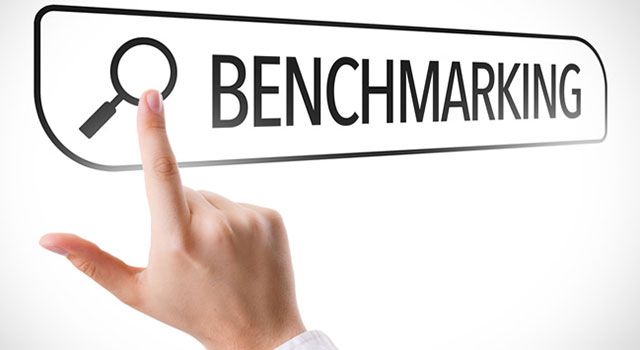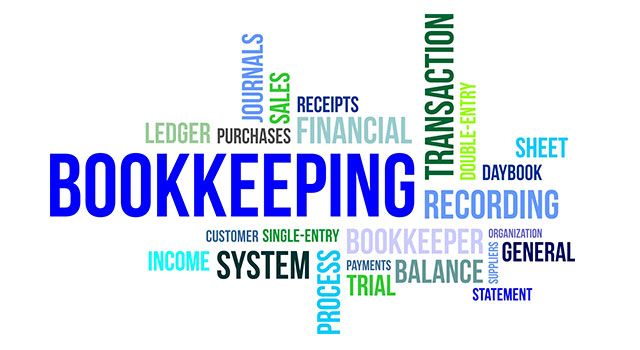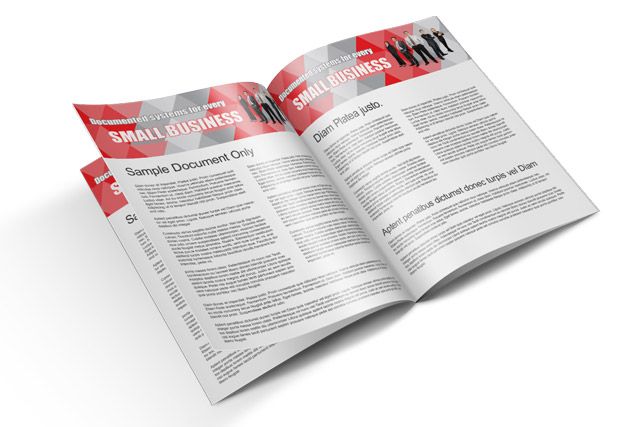
Personal Property Securities Register – Have You Developed A System In Your Business?
Issue 0007
Have You Developed A System for PPSR?
The Personal Property Securities Register (PPSR) was introduced over a two-year period, which finished on the 31 January 2014. The legislation is now fully operational throughout Australia.
During that transitional stage, there were, at least, four major court cases that arose through disputes between the person who actually paid for an asset and the liquidator or receiver of their customer or a property on which their assets were stored. In each case, the liquidators or receivers were successful, because the courts are taking a very strict interpretation of what the law says. Ignorance is of no benefit and is not an excuse. Some businesses have lost millions of dollars’ worth of assets, because of uncertainty about this legislation or, indeed, complete lack of knowledge about this legislation.
Definition
The terminology ‘personal property’ can be misleading. Many people do not accept that ‘personal property’ is referring to ‘business property’. It is and can be a very costly misunderstanding for business people.
The definition of ‘personal property’ is all forms of property other than real estate. In saying that, ‘personal property’ under this legislation includes a vast range of business assets.
What Type Of Transactions Are Included?
They are quite numerous and can include:
- sale of goods on consignment;
- supplying of goods utilising hire purchase or lease agreements;
- supply of goods, including a ‘Retention of Title’ or ‘Romalpa Clause’ – you can still use them, but you need to have the clause updated to comply with this legislation;
- goods stored on someone else’s property – this is a real problem area under this legislation;
- receivables or debtors that have been assigned;
- livestock on agistment;
- share farmers for security over a crop;
- tradesmen’s plant and equipment, tools, etc, stored on someone else’s property (eg a construction site);
- stock inventory that has been supplied by a supplier to a store;
- artist’s works, sculptures, etc, which are left with a commercial art gallery, dealer, etc;
- intellectual property that has been used by other businesses; and
- loans to entities, both close entities and ‘arm’s length’ entities.
The range of business activities that fall under the PPSR is very significant.
The Transition Period
Some people have stated that they believe this legislation has heralded the greatest upheaval of commercial law in Australia in the last 200 years. I agree with them. This is a very significant legislation, which unfortunately, neither the Labor government nor the Liberal government, have allocated sufficient money for a proper education program for small businesses around Australia, as to how this legislation will operate. One commentator said:
“The government spent millions of dollars educating the Australian business community on how GST would operate and GST couldn’t send you broke. But very, very little money has been spent in educating the business community as to how the PPSR will operate and, unfortunately, this legislation can send you broke.”
What Is The Problem?
Prior to the introduction of this legislation, the lessor, or the person making goods available for hire, or placing them at someone else’s premises, owned the goods at all times. If the customer defaulted, or the property owner got into financial difficulty, the equipment owner simply repossessed their assets, since that asset did not form part of the insolvent estate.
However, the Personal Property Securities Act (PPSA) has changed all that. This legislation has been introduced based on New Zealand legislation, which was introduced in 2002. There has been some very significant court cases fought in New Zealand since that date.
This legislation was a consolidation of around 70 acts of Parliament, from Federal to State and Territory governments. It really made it a lot easier for banks and lenders (and probably motor vehicle dealers) to track assets down on the register.
But one of the fundamental problems that has occurred is that, if businesses do not recognise the need to seriously consider registering their security interest on the PPSR, then the business could lose ownership of the assets for which they have paid. That doesn’t sound fair, but that’s how the legislation works. ‘Title is no longer king’.
There could be very unfortunate consequences for businesses if your interest is not registered. The business will effectively lose control of their assets, in the event of their customer’s default, bankruptcy or insolvency. If this occurs, other parties, such as your customer’s bank, the receiver, an appointed liquidator, or bankruptcy trustee, can then rank in front of the legitimate owner of the goods under this legislation. The liquidators, administrators, etc, will be able to deal with the business’ goods as they wish. In effect, the business’ goods will become available to satisfy the claims of the customer’s bank and other secured creditors. The person who has paid for the asset can be reduced to an unsecured creditor.
Getting Your Business Ready
One of the quirks of this legislation is that registration is not mandatory, but is voluntary. Therefore, every business needs to determine a policy as to what transactions to register under the PPSR. If you issue an invoice for, say, $100, you wouldn’t probably worry about registering that invoice on the PPSR.
Incidentally, the register is available 24/7. Simply visit the PPSR website to register for $7.40 each transaction. You need to be extremely accurate in the information you place on the register.
It’s up to individual businesses to decide whether to ‘self-insure’ and not register, or to register for some or all of your customers.
My suggestion is that you need to establish a minimum amount of an invoice. I believe a guiding thought should be: ‘Would you be financially embarrassed if a customer did not pay an invoice for that amount of money?’
Depending on your business, that amount could be $1,000, $10,000, or $50,000. That’s a personal choice and it’s the amount of money that would cause you anxiety.
You might also like to consider individual customers, if you believe that some customers are very sound, whilst others are not as sound. Perhaps you can pick the ones that are not very sound. You need to think about it. What should determine that monetary sum? You need to implement a system in your business to make sure each invoice is examined at the time.
The other very important consideration is where your assets are being placed. Where were your assets last night? Because, under this legislation, if your assets have been at someone else’s premises and, in the unfortunate event that a liquidator or receiver was appointed to the owner of that other premises ‘last night’, while your assets were there, you could potentially lose out very significantly under this legislation. Because the legislation assumes that, if the assets are of some significant value, then you would’ve registered them. This is the big message that, unfortunately, in my opinion, the government has not effectively communicated well in the business community.
I believe you will need assistance from two professional groups.
You will need assistance from a commercial solicitor to draft a ‘Retention of Title’ clause or a ‘Romalpa Clause’, which conforms to this new legislation. The legislation also requires you to have a ‘Terms of Trade’ agreement, which you ask your customer to sign. In actual practice, you might need more than one ‘Terms of Trade’ agreement, depending on who your customers are and your ‘modus operandi’ when you’re dealing with those customers, as to the type of agreement that you may need.
The other group of people who can assist you is accountants. Our recommendation is that you talk to your accountant and ask them to assist you with designing an appropriate system and periodically review that system, to ensure your staff is abiding by the system, so you do not get a very bad shock one day and realise you have a couple of hundred thousand dollars’ worth of equipment on someone else’s property that had not been appropriately registered under this legislation.
Accountants Can Assist
Accountants, who are offering business advisory services, will be able to assist you with designing appropriate system to help you in your business.
ESS BIZTOOLS has designed systems for accountants, offering business advisory services, for a wide range of industries such as:
- Retail
- Restaurants
- Hospitality
- Trades
- Contractors
- Wholesalers
- Suppliers
- Livestock owners
- Farmers producing crops
- Equipment renters
- Ingredients suppliers
- Artists
- Sculptors
There is something a little different in each of those industries. There are a lot of other industries which have still got concerns or problems under this legislation.
If you have not already done so, I would suggest you consult your accountant or your commercial solicitor at the earliest opportunity. Your solicitor will draft the documents for you, but your accountant will be the one that, in most cases, will be able to assist you to implement appropriate systems.
If your accountant is not supplying business advisory services and is unable to help you, I’ll be happy to provide you with the list of accountants in your location, who can offer these services. Send an email to peter@essbiztools.com.au with your location and postcode and we will send you the names of accountants within your area, who are offering these types of services.
ESS BIZTOOLS has developed hundreds of articles and other templates, to assist small business operators to improve their business operations. A complimentary copy of our report, ‘PPSR – Operational Issues in Risk Management’, is available at:
Past Posts
-
 Innovation is Important for SMEs
Innovation is Important for SMEs -
 6 Steps to Boost Your Productivity and Profits
6 Steps to Boost Your Productivity and Profits -
 Tax Incentives For Early Stage Investors
Tax Incentives For Early Stage Investors -
 ESIC Targets SMEs, Inventors, Young Companies
ESIC Targets SMEs, Inventors, Young Companies -
 Early Stage Innovation Company Investor Opportunities
Early Stage Innovation Company Investor Opportunities -
 Will You Have an ESIC Story?
Will You Have an ESIC Story? -
 Are you Receiving a CFO Service from your Accountants?
Are you Receiving a CFO Service from your Accountants? -
 Succession Planning
Succession Planning -
 Business Plans
Business Plans -
 The Year for Business Advisory Services!
The Year for Business Advisory Services! -
 Are you Aware of the PPSR?
Are you Aware of the PPSR? -
 SME Operators – Accountants can Help you with Debtors’ Ma...
SME Operators – Accountants can Help you with Debtors’ Ma... -
 Happy New Financial Year
Happy New Financial Year -
 The Finalisation of the ESIC Legislation will be a Great ...
The Finalisation of the ESIC Legislation will be a Great ... -
 A Business Evaluation Review Can Assist You
A Business Evaluation Review Can Assist You -
 June is a Great Time to Prepare a Business Plan
June is a Great Time to Prepare a Business Plan -
 Businesses Need a Broad Succession Strategy
Businesses Need a Broad Succession Strategy -
 Innovation Companies are a Great Opportunity for SMEs
Innovation Companies are a Great Opportunity for SMEs -
 The PPSR – are you aware of it and how it can affect your...
The PPSR – are you aware of it and how it can affect your... -
 Debtors Management - Vital for Business Success
Debtors Management - Vital for Business Success -
 How can your Accountant assist you?
How can your Accountant assist you? -
 The Personal Property Securities Register – how do you pr...
The Personal Property Securities Register – how do you pr... -
 Legal Advice is Essential for Business Success
Legal Advice is Essential for Business Success -
 Is your accountant your trusted adviser
Is your accountant your trusted adviser -
 Is your accountant famous for adding value?
Is your accountant famous for adding value? -
 Portfolio Allocations Are Important For Effective Management
Portfolio Allocations Are Important For Effective Management -
 The Challenges To Navigate In 2015
The Challenges To Navigate In 2015 -
 Business Plans Are Important For All Businesses
Business Plans Are Important For All Businesses -
 Entrepreneurs’ Infrastructure Program
Entrepreneurs’ Infrastructure Program -
 Digital Disruption Is A Major Concern
Digital Disruption Is A Major Concern -
 Court Case Decisions on the Personal Property Securities ...
Court Case Decisions on the Personal Property Securities ... -
 Personal Property Securities Act Presents Businesses A "T...
Personal Property Securities Act Presents Businesses A "T... -
 Do You Require Additional Financial Services?
Do You Require Additional Financial Services? -
 Personal Property Securities Act – How Does It Affect Sma...
Personal Property Securities Act – How Does It Affect Sma... -
 Business Health Checks For Your Business
Business Health Checks For Your Business -
 Why Do Some Accountants Offer Chief Financial Officer Ser...
Why Do Some Accountants Offer Chief Financial Officer Ser... -
 Getting Assistance From Your Accountant To Better Manage ...
Getting Assistance From Your Accountant To Better Manage ... -
 Identifying The Services You Want To Receive From Your Ac...
Identifying The Services You Want To Receive From Your Ac... -
 What Is Business Advisory Services?
What Is Business Advisory Services? -
 Accountants Can Offer More Services Than Just Tax Returns
Accountants Can Offer More Services Than Just Tax Returns -
 Being Kept In The Loop By Your Accountant
Being Kept In The Loop By Your Accountant -
 Personal Property Securities Register – Have You Develope...
Personal Property Securities Register – Have You Develope... -
 Reducing Debtors' Days Outstanding
Reducing Debtors' Days Outstanding -
 Management of Costs - An Overview
Management of Costs - An Overview -
 Succession Planning - Why Is It Necessary?
Succession Planning - Why Is It Necessary? -
 Safe Guarding your Business under the Personal Property S...
Safe Guarding your Business under the Personal Property S...




































